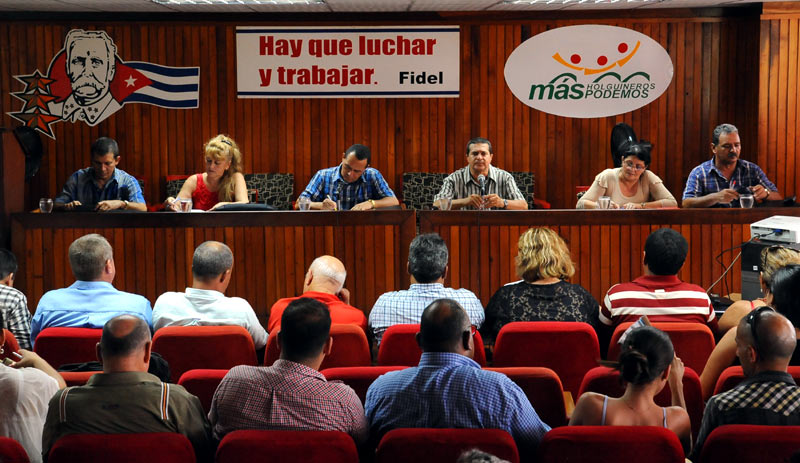Holguin Implements Measures to Face Energy Situation
- Written by Maribel Flamand Sánchez
- Published in Holguin
- Hits: 1318

The highest political and administrative authorities of the province of Holguin provided detailed information on the measures undertaken in the territory to maintain vitality in the strategic sectors of the economy and services in the face of the current energy situation the country is experiencing, as a consequence of the intensification of the aggressive US policy against the Caribbean nation.
Ernesto Santiesteban Velazquez, first secretary of the Communist Party of Cuba (PCC) in the eastern province, said that the people must have the confidence that it is a temporary situation and every effort is made to minimize its impact.
Julio Cesar Estupiñan, president of the Provincial Assembly of People’s Power, detailed the measures that are implemented based on a work system that can alleviate the situation. He informed that the province complies with the assigned energy plan, an indicator that is kept under strict control.
Among other measures, he referred the displacement of the main activities towards the schedules of lower energy consumption, the turning off, mainly of the administrative areas, the reduction of the lighting in external spaces and the permanent exchange with the workers on the need of saving.
Transport is one of the sectors with the greatest impact, hence control is strengthened so there are not means of cargo or passengers travelling empty. National and provincial visits are reduced to the minimum necessary and the videoconferencing system is extended to indicate control and evaluate the actions.
The province supports from alternative sources for electricity generation, such as 425 windmills and 47 solar panels, mainly in agriculture.
In the health sector, one of the priorities for the energy contingency is ambulance services for peremptory cases. Estupiñan noted that transportation is guaranteed for those patients whose health condition requires it, such as hemodialysis and other services essential for public health.
The collection of solid waste in the city center will be carried out with technical means, while animal traction will be used in the neighborhoods. It is also guaranteed the evacuation of biological waste from hospitals and polyclinics by the mechanized network and the systematic nature that this demands.
There are investments that decrease their level of activity but are not paralyzed as the water transfer works associated with agriculture, tourism, some repair actions of schools, clinics and other health facilities and the construction of 113 state homes that have their planned completion for this month.
The agricultural sector boots production of food with the use of animal traction, while the commitment of 1,664 hectares to be planted in this period is maintained, as well as preparing another 2,758, including cane planting.
Productions that substitute imports and those destined for export, such as coal, are reorganized both for commercialization abroad and for use in the territory.
For the collection of agricultural products, strategies are also foreseen that will guarantee this activity with the rationalization of transport equipment and without affectations.
In tourism, service schedules are also adapted, without reducing efficiency.
The resources for the anti-vector campaign will continue to be a priority for the country.
Santiesteban Velazquez called on avoiding the action of opportunists who intend to monopolize products and increase prices and thereby create discontent among the population. He also called on the residential sector to pay attention to energy savings, water and liquefied gas.
